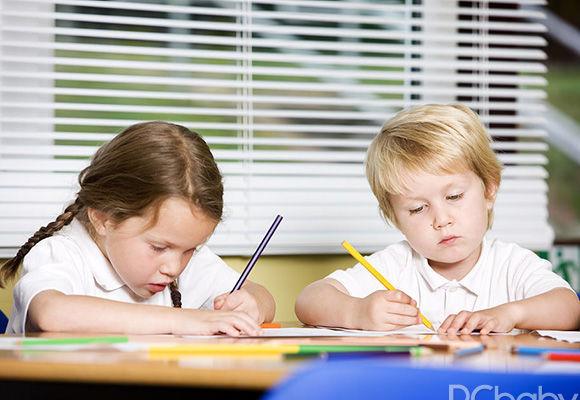Some parents are troubled by their children's inability to concentrate on class: they are always distracted during class; there are many small movements, one moment playing with pencils, the other playing with rubber sassafrases; usually doing things very slowly, procrastinating; writing homework, drinking water for a while, peeing for a while... Couldn't sit still. If I go on like this, I'm really worried that I won't be able to learn anything!
Concentration, affecting children's future learning ability
Concentration, or attention, refers to the state of mind in which a person is focused on an event or activity.
Many people are easily tempted by things big and small from the outside world, and those who are not firm will soon be distracted. If a person can't concentrate on any work or things, and is easily disturbed by the surroundings, it must be a rather painful thing, and it is difficult to achieve something in a certain field.
Concentration is an important foundation for children's future learning, the stronger the concentration of children, can be highly focused on one thing, in a unit of time, can maximize the effect of learning. That is, the better the concentration, the more efficient the learning will be, and the better the grades.
Therefore, in order to let children have stronger learning ability in the future, most parents pay more and more attention to cultivating their baby's concentration!

Image source: @Visual China
When is it best to train concentration?
Concentration training, the best period is 0-3 years old is the golden period, 3-6 years old also has an effect, children grow up more difficult to correct.
0-3 years old is the key period of baby's brain development, but also the initial stage of the cultivation of various skills, just like a blank piece of paper, you teach the baby what, he can learn something! 3-6-year-old babies, the subjective consciousness begins to become stronger, but this is also the cultivation stage of children's behavior habits, so you can also train your concentration.
How to improve your baby's concentration?
Some mothers said that their 5-year-old baby can't write for more than 1 hour, always all kinds of small actions, can't sit still, it's really annoying. Reading too, after watching for half an hour, I started to play with toys! For kindergarten babies, there is no need to complete 1 hour of writing.
Judging from the baby's concentration development law, the parents' expectations are obviously unreasonable. Studies have shown that under normal circumstances, the attention of 3-year-old children can be concentrated for about 5 minutes, 4-year-old children are about 10 minutes, and 5-7 years old children are about 15 minutes. Concentration can be cultivated, but it must be in line with the child's physical and mental development.
Image source: @Visual China
There are 4 ways to train your child's concentration:
1. Visual attention training
Have your child observe photos or animal pictures, etc., and ask questions that your child will answer. For example, answering the color and name of the fruit, the number of people in the photo, etc., it is necessary to change the props frequently and set different questions to attract children to answer.
2. Auditory attention training
Tell your child a story, and when it's over, ask questions and let them answer. Of course, it is also okay to tell the child the problem before telling the story. The more training is performed, the more the child will naturally focus on the whole story.
3. Mixed attention training
That is, the combination of what the eyes see, what the ears hear, and doing movements, both visual and auditory training, and movement training. Take the name of an item and ask your child to point it out. This kind of training should start with the simplest movements, and cannot be rushed.
At a time when there are more and more distractions and temptations, concentration becomes increasingly scarce. In addition to understanding the development rules and training methods of children's concentration, it is more important for parents not to easily disturb their children.